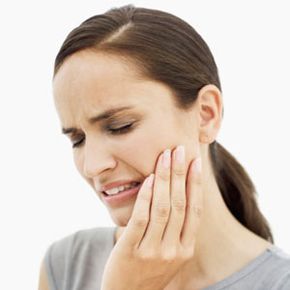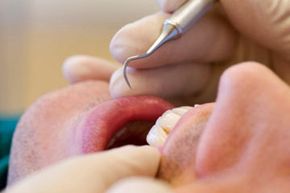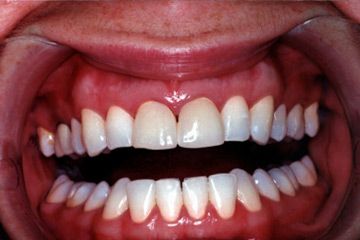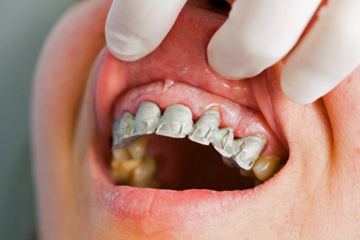Maybe a time or two you've had a pair of jeans become a little too tight. Whether they shrunk in the dryer or you added a few extra pounds to fill out the curves, one consequence of the body-hugging fit is how hard it is to get anything in and out of the pockets. Reaching for cash, lipstick or a comb nearly causes your hand to get stuck in the process.
How does that relate to sore gums? Gums can have pockets too, but you want them to be tight. Teeth and gums should cling together so tightly that you can get little more than dental floss into the gumline. So when something larger, like a poppy seed or a long shredded piece of a crunchy vegetable works its way into the space between, it becomes almost impossible to stop thinking about until you get it out.
Advertisement
This temporary, irritating soreness happens sometimes in even the healthiest of mouths, but when gums lose some of their attachment to teeth, gaps at the gumline and below become larger and looser, and food, plaque and bacteria gather in these pockets. Swelling, soreness and bleeding might develop, and instead of having a problem like in "The Princess and the Pea" where a tiny irritant nags at you for a night, for example, your mouth can become full of sore spots that cause ongoing pain.
Gum soreness is also similar to having a paper cut. It seems like it would be a small thing, but the intense and throbbing nature of the pain can make it extremely annoying and uncomfortable. Having a lodged food particle, a canker sore or other mouth issue is pain amplified. Nerves and tissues in the gums and teeth shoot and throb unlike many others because of the sheer number of nerves and how easily exposed they become when tissues are damaged. Films and drawings that illustrate what's happening inside the mouth depict pain as throbbing red bolts radiating into and out of the surrounding teeth -- and it really can feel like lightning bolts of pain.
How can you know whether your sore gums are just a passing ache in the mouth or a chronic condition that needs professional treatment? Taking a good look in the mirror is a first step, though you may not be able to see the source. When should you have a dentist or a periodontist -- a gum specialist -- take a look?
Open wide to the next page and we'll look into some causes, treatments and tips for long-term care.
Advertisement



